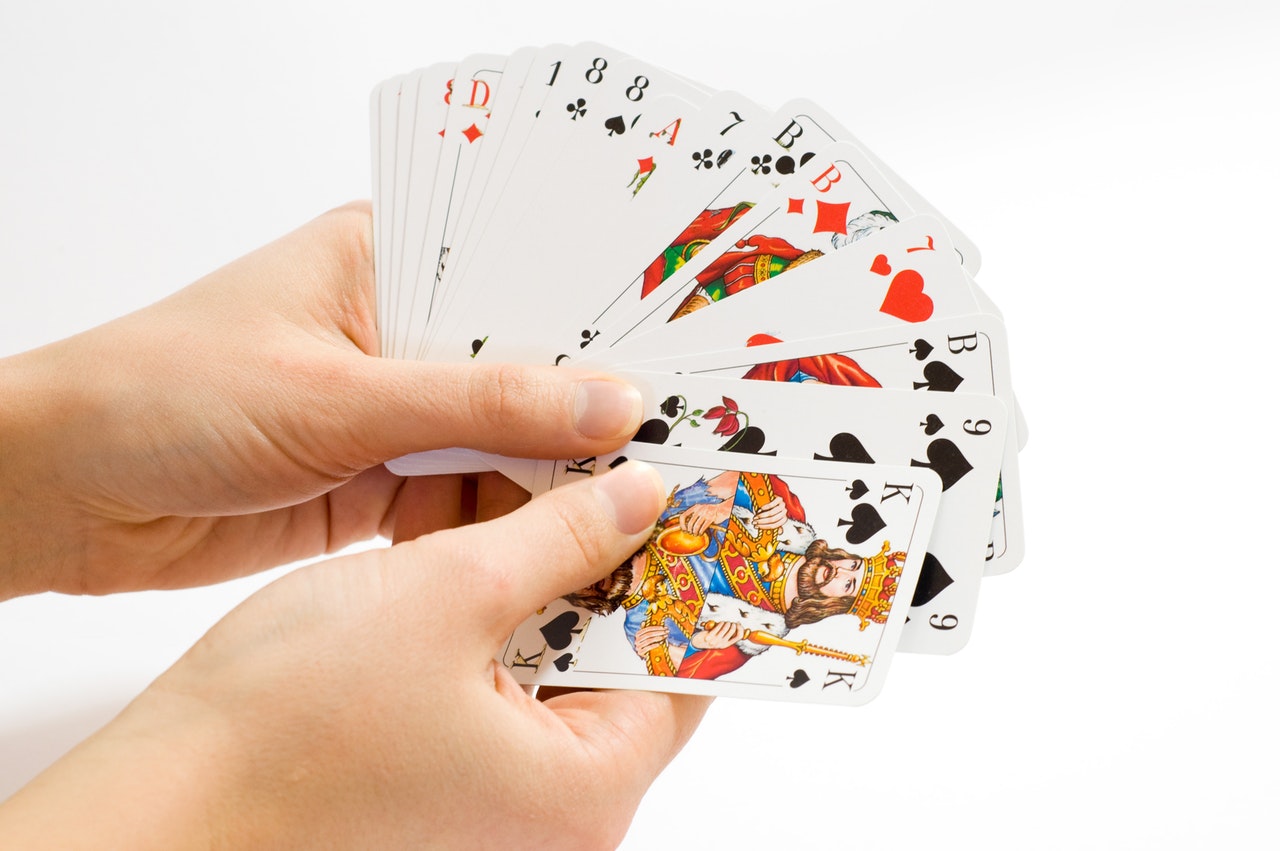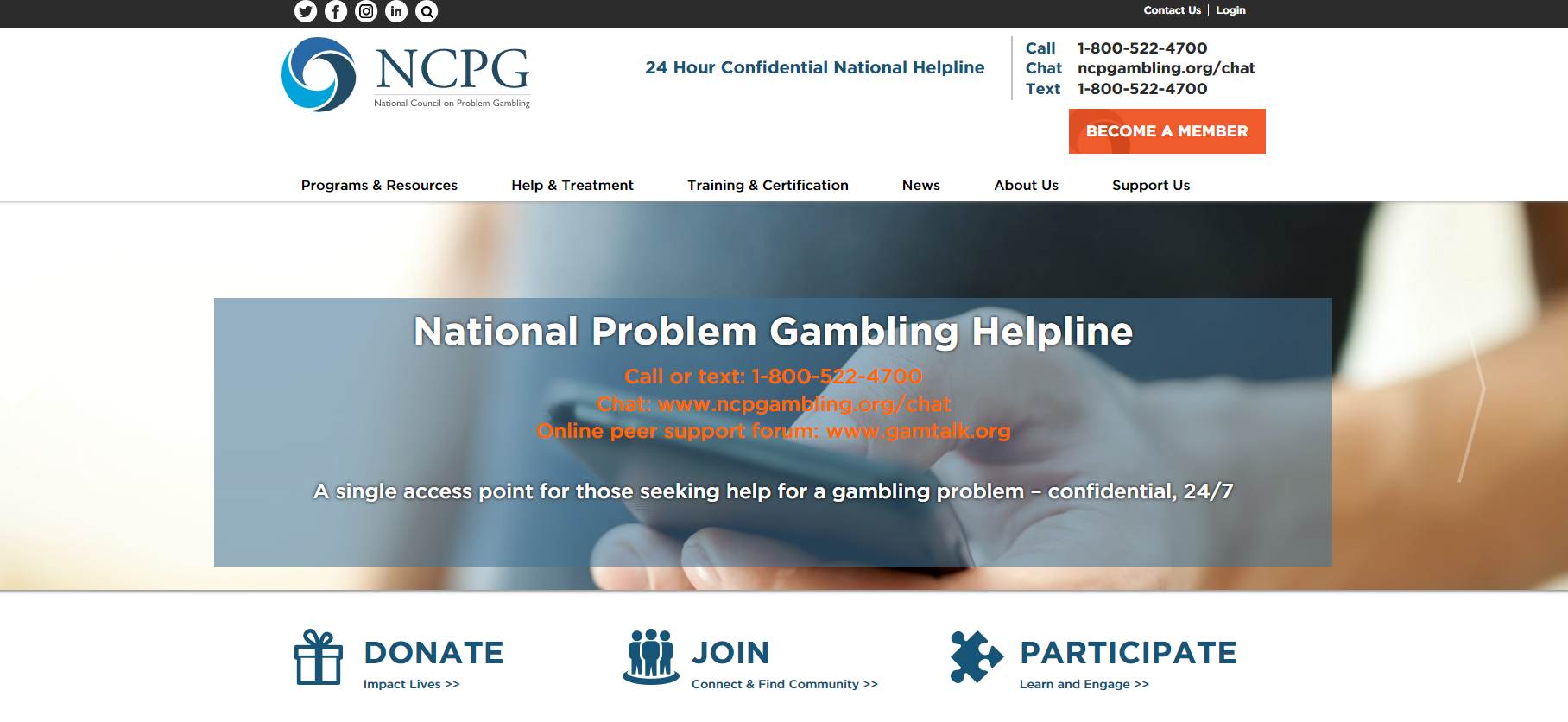Many start gambling for fun, not expecting to develop a gambling addiction. Yet studies show that problem gambling affects 1% of US citizens. At Sportsdaily.com, we’re committed to raising awareness about gambling addiction by providing resources and tools for safe, recreational gambling.
Understanding gambling addiction can help recognize early signs. It also reduces feelings of isolation and shame, guiding those in need towards help. By learning about gambling addiction, you gain insight and knowledge that empowers you to change your situation and overcome the challenges you are facing.
What is Gambling Addiction?
Gambling addiction occurs when fun turns into a compulsive need. It’s no longer harmless; it becomes self-destructive. This shift impacts various life aspects, including finances, relationships, work, and mental health.
Like substance addiction, gambling addiction can have severe consequences without proper intervention. A study by Imperial College London highlights this. It found that gambling activates brain areas similar to drug and alcohol cravings. This discovery underscores how dangerous gambling addiction is. Recognizing problem gambling signs is crucial for taking timely action. One doesn’t need to wait until things get out of hand to take action.
Is Compulsive Gambling the Same as Gambling Addiction?
Compulsive gambling and gambling addiction are often used interchangeably, but subtle differences exist. Compulsive gambling is characterized by an uncontrollable urge to continue gambling, regardless of the negative outcomes it causes. This behavior can become all-consuming, dominating a person’s thoughts and life, leading to significant personal and financial distress.
In contrast, gambling addiction is a broader term that can also encompass the psychological factors and the biological processes underlying the addiction. It can include an emotional or psychological reliance on gambling, not just compulsive behavior.
While compulsive gambling focuses more on the inability to control the impulse to gamble, gambling addiction encompasses the full spectrum of the disorder, including the compulsive behavior, the psychological dependency, and the changes in brain chemistry that sustain the addiction. Both are serious conditions requiring attention and intervention.
Here are key indicative signs of compulsive gambling:
- Constantly Thinking About Gambling: Preoccupation with past gambling experiences and planning future gambling ventures.
- Increasing Bet Amounts: Needing to gamble with larger sums of money to achieve the desired excitement.
- Unable to Stop: Repeatedly trying and failing to control, cut back, or stop gambling.
- Restlessness or Irritability When Not Gambling: Experiencing withdrawal-like symptoms when trying to reduce or quit gambling.
- Gambling to Escape Problems: Using gambling as a way to distract yourself from personal issues or difficult emotions.
- Chasing Losses: Trying to recover gambling losses with more gambling, hoping to win with the next round.
- Lying About Gambling: Hiding the extent of gambling involvement from family and friends.
- Jeopardizing Significant Relationships or Career: Gambling despite the risk of losing important personal and professional relationships or opportunities.
- Relying on Others for Financial Bailout: Depending on others to provide money to relieve desperate financial situations caused by gambling.
What Does Binge Gambling Mean?
Binge gambling refers to sporadic episodes of uncontrolled gambling. Unlike compulsive gambling, which is continuous, binge gambling occurs in discrete bursts. These episodes are often intense and can result in significant financial and personal losses, similar to binge behaviors in other addictions.
Characteristics of Binge Gambling:
- Irregular Frequency: Occurs in episodic, irregular patterns rather than as a consistent behavior.
- Intense Gambling Sessions: Involves periods of intense gambling, often lasting for several days.
- Large Financial Losses: Can lead to substantial financial losses in a short time.
- Emotional Swings: Associated with extreme emotional highs and lows during and after gambling episodes.
- No Gambling Phases: Includes intervals where the individual may not gamble at all.
- Loss of Control: Exhibits a lack of control over gambling during binge episodes.
- Negative Impact on Life: Causes adverse effects on personal, professional, and social life, similar to continuous gambling addiction.
Binge gambling, though episodic, should be taken seriously due to its adverse effects. Moreover, it can escalate into a continuous gambling addiction if not addressed properly.
What Does Problem Gambling Mean?
Problem gambling arises when gambling starts having adverse effects on someone’s life. It’s an indicative sign that a more serious issue, like gambling addiction, can develop. Here are some signs that suggest the development of problem gambling:
- Frequent Over-spending: Regularly exceeding gambling budgets or financial limits.
- Increased Time Spent Gambling: Spending more time gambling than intended.
- Prioritizing Gambling: Ignoring work, family, or personal duties due to gambling.
- Borrowing Money for Gambling: Asking friends or family members for money or using credit to finance gambling activities.
- Mood Swings Related to Gambling: Experiencing significant emotional changes based on gambling wins or losses.
- Gambling Despite Negative Consequences: Continuing to gamble even when facing financial, social, or legal problems.
What Causes Gambling Addiction?
Gambling addiction is a complex behavioural and psychological issue influenced by various factors. To understand it fully, it’s essential to delve into these contributing elements:
- Biological, Psychological, and Social Factors: Dr. Timothy Fong, a gambling addiction expert, highlights that a blend of biological, psychological, and social elements plays a crucial role in the development and persistence of gambling addiction.
- Professional Aspirations: The allure of becoming a professional gambler can be a driving force behind addiction.
- Desire for Thrills and Highs: Certain personality traits, such as thrill-seeking behavior and a penchant for high-risk, high-reward situations, can predispose individuals to gambling addiction.
- Desperation for Money: Many fall into the trap of gambling to alter their financial situation, only to find themselves sinking deeper into trouble.
- Brain Pathways: Neurological research indicates that gambling addiction may be linked to the neural pathways in the brain, particularly in the frontal lobe, which is responsible for controlling impulsivity and decision-making.
What to Do If You Have a Gambling Addiction
If you’ve identified signs of gambling addiction or problem gambling, it’s good to acknowledge that you’re aware of them. Acknowledgement is the first step towards recovery, and taking the necessary steps is crucial. Here’s a guideline of what can help you move forward:
- Seek Professional Help: Consult with a therapist or counselor specializing in gambling addiction.
- Join a Self-Exclusion Program: This will ensure that you are protected as you won’t be able to gamble for the chosen time frame.
- Avoid Gambling Triggers: Identify and steer clear of situations that tempt you to gamble.
- Find New Activities: Engage or discover new hobbies or interests that are not related to gambling.
- Plan for Urges: Develop strategies to handle urges to gamble when they arise.
- Practice Self-care: Focus on your mental and physical health through activities like exercise, meditation, or therapy.
- Set Boundaries in Finances: Restrict access to funds and set strict budgets to prevent relapse.
- Stay Educated: Learn about gambling addiction to understand your behaviors and triggers better.
- Stay Sober: Avoid alcohol and drugs, as they can impair judgment and exacerbate gambling problems.
- Join a Support Group: Consider groups like Gamblers Anonymous for peer support.
Treatment to Get Over Gambling Addiction
Addressing gambling addiction usually involves a multifaceted approach, combining medical, psychological, and behavioral methods. Below are some effective treatment modalities:
Specialized Counseling and Therapy
Professional assistance from therapists knowledgeable in gambling addiction is extremely helpful. They offer tailored guidance and strategies for managing and overcoming the addiction.
Cognitive Behavioral Therapy (CBT)
CBT is particularly effective for gambling addiction. It focuses on teaching skills to prevent relapse, altering harmful habits, and uncovering addiction’s root causes. It aids in developing new coping strategies and rectifying misconceptions linked to gambling.
Acceptance Commitment Therapy (ACT)
ACT, known for treating various addictive behaviors, is potentially beneficial for gambling addiction. It involves embracing one’s thoughts and feelings without judgment, focusing on committed action aligned with personal values.
Support Groups and 12 Step Programs
Platforms like Gamblers Anonymous offer invaluable peer support for recovery. These groups provide a sense of belonging, mutual encouragement, and accountability, all vital for overcoming addiction.
Intensive Rehabilitation Programs
Such programs provide a structured and supportive setting for dealing with gambling addiction. They typically combine therapy, counseling, and support group participation, tackling addiction from multiple angles.
Prescribed Medication
Medications may be used to treat concurrent mental health issues like depression or anxiety, often found with gambling addiction. These medications are part of a broader treatment strategy, helping to stabilize mental health conditions and facilitate recovery.
What are the Negative Effects of Gambling Addiction?
The negative consequences of gambling addiction are diverse and significant. This behavioral issue affects various aspects of an individual’s life, including their mental health, often leading to conditions like depression and anxiety. Below, we highlight some of the key negative effects:
- Financial Problems: Leads to excessive debt, loss of savings, and potential bankruptcy.
- Relationship Issues: Causes strain in personal relationships, potentially leading to isolation or divorce.
- Workplace Difficulties: Results in decreased productivity, absenteeism, and sometimes job loss.
- Mental Health Decline: Can trigger or exacerbate depression, anxiety, and feelings of guilt, shame, and helplessness.
- Physical Health Problems: Stress-related physical issues like insomnia, hypertension, and heart disease may arise.
- Legal Challenges: Might lead to illegal activities like theft or fraud to finance gambling.
- Social Withdrawal: Tendency to isolate oneself from social circles and activities.
- Substance Abuse: Increased risk of turning to alcohol or drugs as coping mechanisms.
- Impaired Decision-Making: Difficulty in making rational decisions, often leading to further adverse consequences.
Common Myths About Gambling and Addiction
Myth Fact Admitting to a gambling issue is shameful and shows that you are weak. Recognizing and admitting a gambling problem is an act of bravery and self-awareness. It is the crucial first step in the journey towards recovery. Gambling is just a habit, not a real addiction. Gambling can evolve into a serious addiction with severe negative consequences. Akin to substance dependency, it may require professional intervention and treatment. Gambling addiction is rare and only affects frequent gamblers. Gambling addiction can affect anyone, regardless of how often they gamble. Problematic gambling behaviors can develop in both regular and occasional gamblers. Gambling is a solitary issue that doesn’t impact others. The consequences of gambling can significantly affect friends, family, and colleagues, leading to emotional and financial turmoil. Problem gambling only leads to financial losses and no other issues. The impact of problem gambling extends beyond monetary issues. It can adversely affect mental well-being, relationships, and professional life, showcasing its broad and complex nature. Young people are less susceptible to gambling addiction. With the rise of online gambling, young adults and teenagers are increasingly at risk of developing gambling problems, often starting from an early age. Helping Someone With a Gambling Addiction
Helping someone with a gambling addiction requires understanding, patience, and a supportive approach. Recognizing the signs is the first step to providing the right assistance and guidance:
Here are key signs to identify gambling addiction in someone:
- Secrecy About Finances: Being unusually secretive about money matters or sudden financial problems.
- Excessive Time Spent Gambling: Spending a lot of time gambling, often neglecting other responsibilities.
- Mood Swings: Experiencing extreme mood fluctuations depending on gambling wins or losses.
- Withdrawal from Social Activities: Pulling away from family and friends or losing interest in other activities.
- Borrowing Money: Frequently borrowing money or having unexplained debts.
Steps to Help Someone Dealing with Gambling Addiction:
Recognizing these signs can help in approaching the individual sensitively and effectively. It’s important to address the issue with compassion and without judgment. Here are some steps you can take to provide help and support:
- Open a Conversation: Start a non-confrontational conversation about your concerns.
- Encourage Professional Help: Suggest seeking help from a therapist or counselor.
- Support Their Efforts: Be supportive of their efforts to seek treatment and recovery.
- Manage Finances Together: Offer to help manage or oversee finances to reduce gambling opportunities.
- Educate Yourself: Learn more about gambling addiction to better understand their struggles.
- Be Patient: Understand that recovery is a process and requires time and patience.
- Provide Emotional Support: Offer emotional support and understanding throughout their journey to recovery.
- Avoid Enabling Behavior: Be careful not to enable their gambling in any way.
Encouraging Someone to Seek Treatment
Encouraging a loved one to seek treatment for gambling addiction is a delicate process that requires preparation and sensitivity. Firstly, it’s essential to educate yourself about the addiction and seek professional advice to ensure you’re approaching the situation correctly. Resources and support are available from organizations like the National Problem Gambling Network, which can guide you in addressing the issue effectively and providing meaningful support.
Once you’re well-informed, approach the person with care and empathy. Show concern from a place of love and compassion, rather than judgment. Let them know you’re there to support them and that you understand the complexity of what they’re going through. Encourage them to seek treatment and provide them with resources, making it easier for them to reach out for help.
It’s crucial to create an environment of safety and support, where they feel understood and not judged or shamed. This approach can significantly influence their willingness to seek help and embark on the path to recovery.
Preventing Suicide in People with Gambling Addiction
Nearly half of the individuals receiving treatment for gambling addiction experience suicidal thoughts, and approximately 17% have attempted suicide. This statistic underscores the severity of this mental health crisis. It’s vital to recognize the urgency of seeking help and not to overlook these warning signs. In the U.S., the National Suicide Prevention Lifeline provides 24/7 assistance, offering immediate support and guidance.
For those seeking help internationally, Befrienders Worldwide is available to connect individuals with resources in their specific location and country. Access to such support systems is crucial in addressing and mitigating the risks associated with gambling addiction and its severe impact on mental health.
Gambling Addiction Help By State
- Alabama – https://www.ncpgambling.org/state/alabama/
- Alaska – https://www.ncpgambling.org/state/alaska-14/
- Arizona – https://www.ncpgambling.org/state/arizona/
- Arkansas – https://www.ncpgambling.org/state/arkansas/
- California – https://www.ncpgambling.org/state/california/
- Colorado – https://www.ncpgambling.org/state/colorado/
- Connecticut – https://www.ncpgambling.org/state/connecticut/
- Delaware – https://www.ncpgambling.org/state/delaware/
- District of Columbia – https://www.ncpgambling.org/state/district-of-columbia/
- Florida – https://www.ncpgambling.org/state/florida/
- Georgia – https://www.ncpgambling.org/state/georgia/
- Hawaii – https://www.ncpgambling.org/state/hawaii/
- Idaho – https://www.ncpgambling.org/state/idaho/
- Illinois – https://www.ncpgambling.org/state/illinois/
- Indiana – https://www.ncpgambling.org/state/indiana/
- Iowa – https://www.ncpgambling.org/state/iowa/
- Kansas – https://www.ncpgambling.org/state/kansas/
- Kentucky – https://www.ncpgambling.org/state/kentucky/
- Louisiana – https://www.ncpgambling.org/state/louisiana/
- Maine – https://www.ncpgambling.org/state/maine/
- Maryland – https://www.ncpgambling.org/state/maryland/
- Massachusetts – https://www.ncpgambling.org/state/massachusetts/
- Michigan – https://www.ncpgambling.org/state/michigan/
- Minnesota – https://www.ncpgambling.org/state/minnesota/
- Mississippi – https://www.ncpgambling.org/state/mississippi/
- Missouri – https://www.ncpgambling.org/state/missouri/
- Montana – https://www.ncpgambling.org/state/montana/
- Nebraska – https://www.ncpgambling.org/state/nebraska/
- Nevada – https://www.ncpgambling.org/state/nevada/
- New Hampshire – https://www.ncpgambling.org/state/new-hampshire/
- New Jersey – https://www.ncpgambling.org/state/new-jersey/
- New Mexico – https://www.ncpgambling.org/state/new-mexico/
- New York – https://www.ncpgambling.org/state/new-york/
- North Carolina – https://www.ncpgambling.org/state/north-carolina/
- North Dakota – https://www.ncpgambling.org/state/north-dakota/
- Ohio – https://www.ncpgambling.org/state/ohio/
- Oklahoma – https://www.ncpgambling.org/state/oklahoma/
- Oregon – https://www.ncpgambling.org/state/oregon/
- Pennsylvania – https://www.ncpgambling.org/state/pennsylvania/
- Rhode Island – https://www.ncpgambling.org/state/rhode-island/
- South Carolina – https://www.ncpgambling.org/state/south-carolina/
- South Dakota – https://www.ncpgambling.org/state/south-dakota/
- Tennessee – https://www.ncpgambling.org/state/tennessee/
- Texas – https://www.ncpgambling.org/state/texas/
- Utah – https://www.ncpgambling.org/state/utah/
- Vermont – https://www.ncpgambling.org/state/vermont/
- Virginia – https://www.ncpgambling.org/state/virginia/
- Washington – https://www.ncpgambling.org/state/washington/
- West Virginia – https://www.ncpgambling.org/state/west-virginia/
- Wisconsin – https://www.ncpgambling.org/state/wisconsin/
- Wyoming – https://www.ncpgambling.org/state/wyoming/
Gambling Addiction Resources
A range of support options is accessible for individuals battling gambling addiction. These include group gatherings and specialized counselling, catering to various recovery phases and approaches, offering essential help and guidance.
The National Council on Problem Gambling
- Website: https://www.ncpgambling.org/
- Contact: 1-800-522-4700
SMART Recovery
- Website: https://www.smartrecovery.org/
- Contact: 440-951-5357
Gamblers Anonymous
- Website: https://www.gamblersanonymous.org/ga/hotlines
- Contact: Find local hotline numbers on their website.
American Addiction Centers
- Website: https://americanaddictioncenters.org/gambling-addiction
- Contact: 1-888-986-1312
SAMHSA’s National Helpline
- Website: https://www.samhsa.gov/find-help/988
- Contact: Dial 988
Gam-Anon
- Website: http://www.gam-anon.org/
- Contact: Check their website for local support group details
Gambling Addiction Help Worldwide
- Gambling Help Online (Australia)
- Responsible Gambling Council (Canada)
- Gambling Therapy (Global Support)
- Problem Gambling Foundation (New Zealand)
- GamCare (UK)
- BeGambleAware (UK)
References and Sources
- https://www.mayoclinic.org/diseases-conditions/compulsive-gambling/symptoms-causes/syc-20355178 https://www.mayoclinic.org/diseases-conditions/compulsive-gambling/diagnosis-treatment/drc-20355184
- https://www.psychguides.com/behavioral-disorders/gambling-addiction/symptoms-and-effects/
- https://www.sciencedaily.com/releases/2017/01/170103101751.htm
- https://www.uclahealth.org/news/gambling-addiction-can-cause-psychological-physiological-health-challenges
- https://www.addictioncenter.com/drugs/gambling-addiction/
- https://www.nevadacouncil.org/understanding-problem-gambling/impact-consequences/suicide/
- https://www.ncpgambling.org/
- https://www.befrienders.org/
- https://suicidepreventionlifeline.org/
Gambling Addiction FAQs:
What are the signs of gambling addiction?
Key signs include constant thoughts about gambling, needing to gamble with more money for excitement, struggling to quit or reduce gambling, and gambling despite negative consequences.
What makes gambling so addictive?
Gambling is addictive due to the thrill of risk-taking, the dopamine rush from winning, the easy accessibility of gambling platforms, and the hope of quick financial gain.
What type of gambling is the most addictive?
Electronic gambling machines (like slot machines) are often considered the most addictive due to their fast pace, easy access, and the way they engage players with frequent small wins.
How can you assist someone with a gambling addiction?
To assist someone with a gambling addiction, approach them with empathy, encourage professional help, offer emotional support, and guide them towards resources like therapists or support groups.
Graziella Calleja
Graziella is an expert on the online gambling industry and the crypto casino market. After working with a licensed operator as a support agent, she developed a keen interest in the industry. Her passion for casino gaming led her to start writing guides and reviews for several publications including Basketball Insiders, Business2Community, and Augusta Free Press.Graziella is an expert on the online gambling industry and the crypto casino market. After working with a licensed operator as a support agent, she developed a keen interest in the industry. Her passion for casino gaming led her to start writing guides and reviews for several publications including Basketball Insiders, Business2Community, and Augusta Free Press.View All Posts By Graziella Calleja



